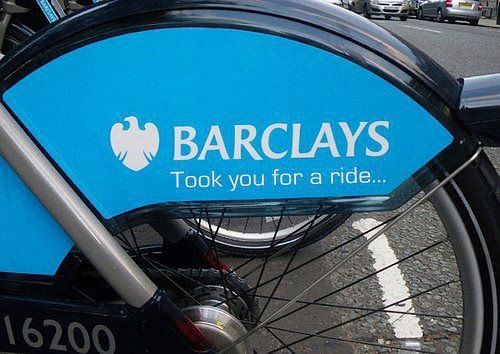 There's a recent trend on social media to make spoofs of businesses adverts. Most recently Shell has fallen victim to these spoofs with its Let's Go campaign. It began as a way for Shell to communicate its expansion into alternative energy sources but after environmental activists got their hands on it it ended as a caption contest to highlight their investments in non-renewable resources. Almost 10,000 images were created which added different tag lines to Shell's original print adverts and these new posters were shared across social media channels.
There's a recent trend on social media to make spoofs of businesses adverts. Most recently Shell has fallen victim to these spoofs with its Let's Go campaign. It began as a way for Shell to communicate its expansion into alternative energy sources but after environmental activists got their hands on it it ended as a caption contest to highlight their investments in non-renewable resources. Almost 10,000 images were created which added different tag lines to Shell's original print adverts and these new posters were shared across social media channels.We've also seen similar spoofs on Barclay's bikes after the recent rate-fixing stories and on Nestle and Unilever adverts following concerns about palm oil. You've got to admire the creativity of these activists and it presents an important new concern for businesses.

 Since Nike's experiences over a decade ago, businesses have always feared customers will boycott their products but this is a new bigger concern. Getting people to stop buying products or organising protests is difficult, and people are unlikely to share those messages. Spoofs on the other hand are funny, intelligent and simple, and as social media users are always looks for things to share they're an incredibly easy way to spread the message. For a business this could spell disaster. It's easy to ignore a few customers that stop buying products, but it's much more difficult to ignore a social media storm. After all, considering the 1:9:99 rule of social media, for every picture created, 9 others will comment on it and 99 others will see it. And whilst a businesses might spend hundreds of thousands on getting a positive message across to consumers, a clever negative message could be spread at practically no cost at all. It seems social media really is shifting the power balance and we may see more 'good' businesses as a result.
Since Nike's experiences over a decade ago, businesses have always feared customers will boycott their products but this is a new bigger concern. Getting people to stop buying products or organising protests is difficult, and people are unlikely to share those messages. Spoofs on the other hand are funny, intelligent and simple, and as social media users are always looks for things to share they're an incredibly easy way to spread the message. For a business this could spell disaster. It's easy to ignore a few customers that stop buying products, but it's much more difficult to ignore a social media storm. After all, considering the 1:9:99 rule of social media, for every picture created, 9 others will comment on it and 99 others will see it. And whilst a businesses might spend hundreds of thousands on getting a positive message across to consumers, a clever negative message could be spread at practically no cost at all. It seems social media really is shifting the power balance and we may see more 'good' businesses as a result.